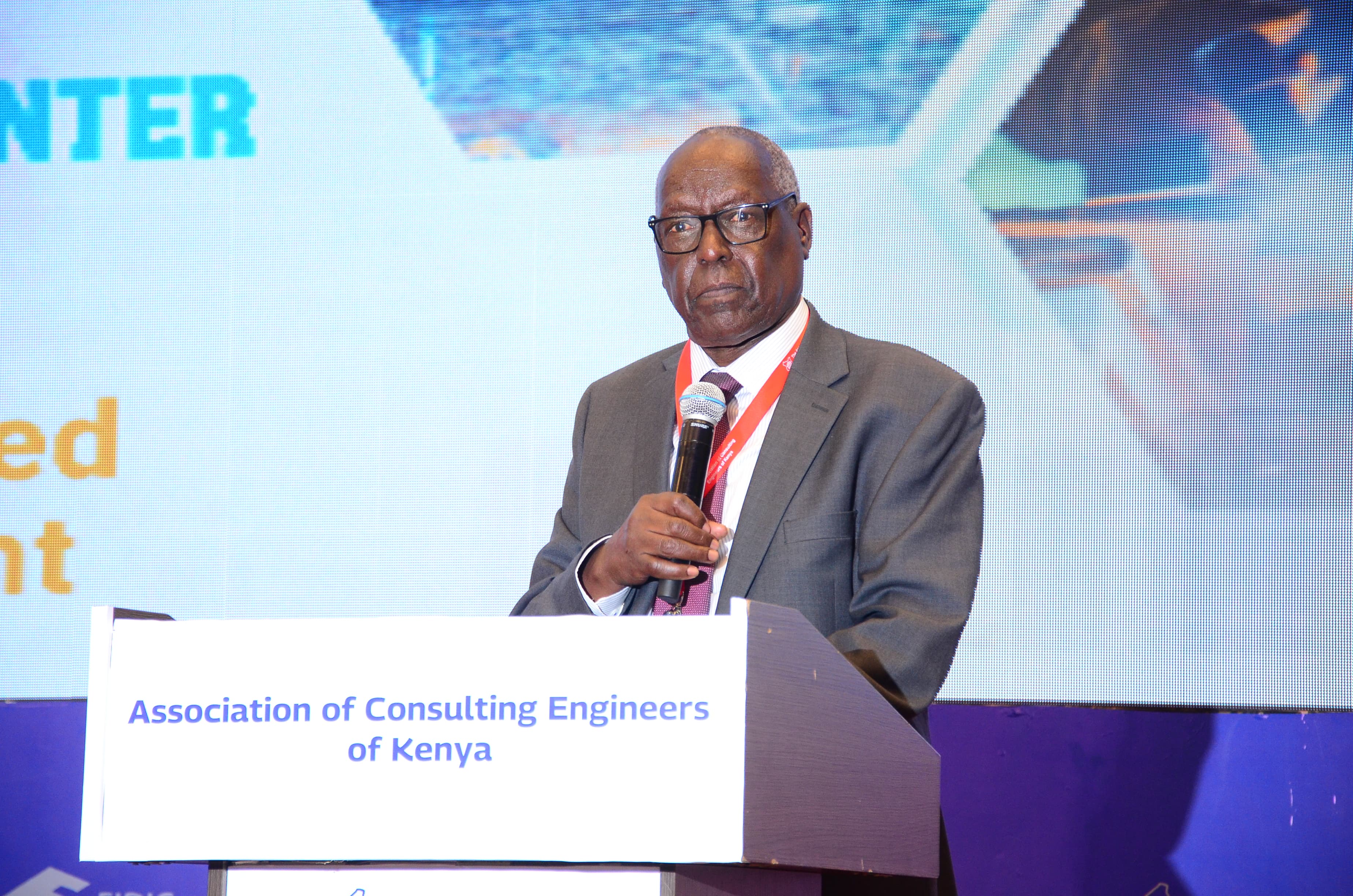State to prioritize investments in water infrastructure using advanced technologies and materials.
By Yobesh Onwong’a (MyGov)
The Government has prioritized investments in water infrastructure, with a focus on integrating advanced technologies and materials that will ensure sustainability and resilience.
Eng. Eric Murithi Mugaa, the Cabinet Secretary, Ministry of Water, Sanitation and Irrigation in a speech read on his behalf by Eng Simon Korir, the Director of Water Infrastructure Development said that the investments include plans to construct 100 dams using innovative engineering solutions and materials that will enhance their efficiency and longevity
Speaking in Nairobi during the 3rd Annual ACEK Conference, Eng Murithi disclosed that Mzima II Project, Londiani Dam, Lamu Desalination Plant, Sabaki Water Carrier Project, Galana Dam and High Grand Falls are currently in the Project Development Phase.
“The Government is focused on improving the management of our water resources by reducing Non-Revenue Water from 43% to 15% by 2027 through a comprehensive approach that addresses several key factors,” said the CS.
The Cs pointed out that upgrading to modern, durable pipe materials and replacing ageing infrastructure will reduce leaks caused by corrosion and wear.
“Effective pressure management will minimize pipe bursts, and improving the speed and quality of repairs will prevent minor leaks from escalating.” He said.
Additionally, the CS disclosed that investing in advanced leak detection technology will help to quickly identify and fix leaks, ensuring a more efficient and sustainable water distribution system.
Commenting on the training of engineers, Eng. Murithi said that the government is committed to enhancing the skills of engineers through continuous on-the-job training, ensuring they are equipped with the latest knowledge and techniques in water management.
“In line with this, completed projects such as Yamo, Thiba and Karimenu dams have already served as excellent training grounds, allowing young engineers to learn from real-world applications and contribute meaningfully to our national water infrastructure,” said the CS.
Engineers Board of Kenya (EBK) Chairman Eng. Erastus Mwongera called on engineers to harness the power of productivity, innovation, and technological adaptation to create new opportunities and, most importantly, to generate jobs.
“By bringing together professionals for consultation and cooperation, ACEK has not only fostered excellence in consultancy but has also contributed significantly to job creation in the private sector,” said Eng. Mwongera.
On education, the EBK Chairman confirmed that the Board is making significant progress in recognizing engineering programmes, and was optimistic that all pending programmes will be on boarded within this financial year.
On compliance, Eng. Mwongera noted with concern that the recent instances of infrastructure failures underscore the need for greater involvement of engineers in all phases of project development.
“We are fast-tracking career progression guidelines and working diligently on the Building Control Bill to ensure that our infrastructure is safe, reliable, and sustainable,” he said.
Eng. Mwongera advocated for increased local manufacturing to reduce our reliance on imports, that will not only bolster the economy but also create much-needed jobs for Kenyans.
Eng. Jane Mutulili, Chairperson, ACEK noted that Kenya's Vision 2030 is an ambitious development blueprint aimed at transforming Kenya into a newly industrializing, middle-income country by 2030.
“Engineering is at the heart of Vision 2030 which emphasizes the need for world-class infrastructure, including roads, railways, ports, and energy systems, all of which depend heavily on advancements in engineering and the availability of high-quality engineered materials and equipment,” said Eng. Mutulili.
As part of Vision 2030, the ACEK Chairperson noted that the government has prioritized investments in engineered materials and equipment to support large-scale infrastructure projects.
“This includes the development of local manufacturing capabilities to produce materials that meet international standards, reducing reliance on imports, and fostering economic growth,” added Eng. Mutulili.
She pointed out that complementing Vision 2030 is the BETA Transformative Agenda, which encourages investment in research and development (R&D) within the engineering sector, fostering innovation in materials science, manufacturing processes and sustainable engineering practices.
Eng Mutulili noted that engineers are critical to the successful implementation of Innovation, Incubation, And Lifecycle Engineering in the 21st Century.
“As the driving force behind infrastructure development, industrialization, and technological innovation, engineers must embrace new materials, techniques, and equipment that align with the goals of sustainability and economic growth,” she said.
ENDS/Mutiso

